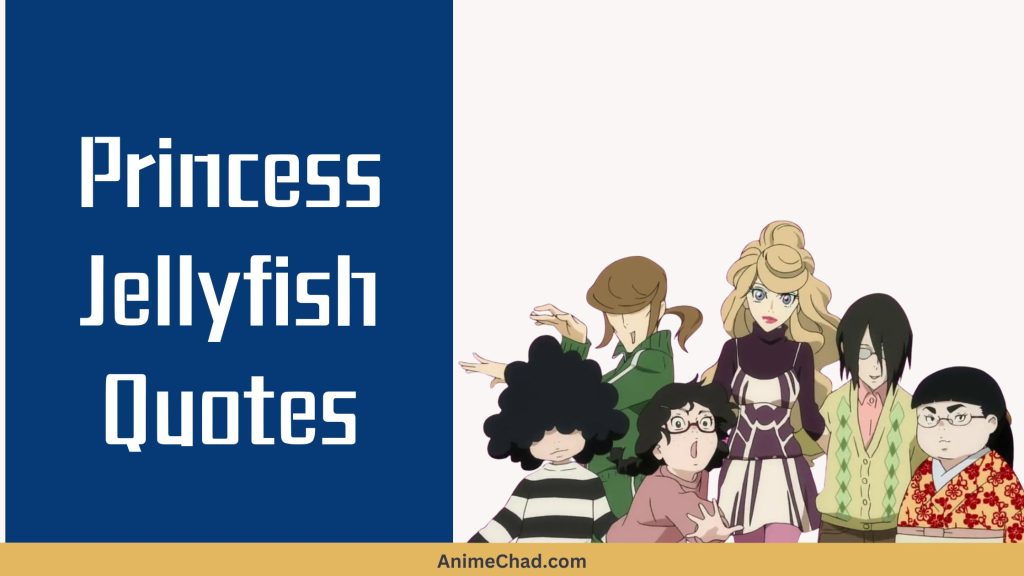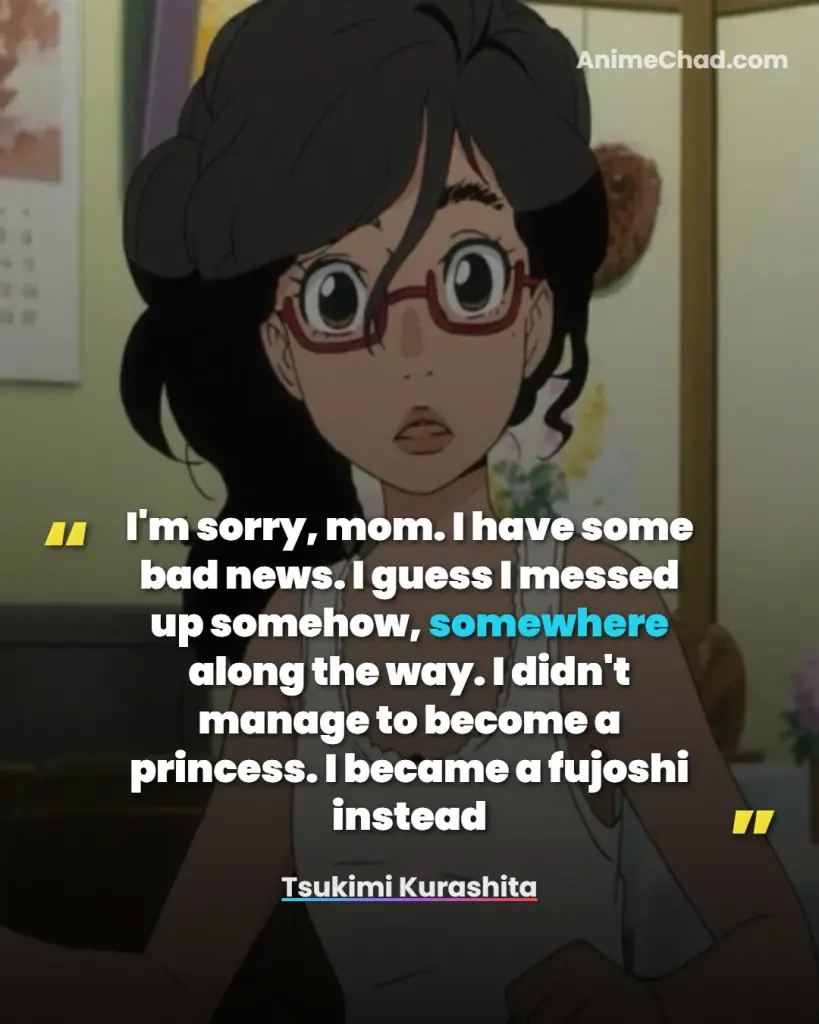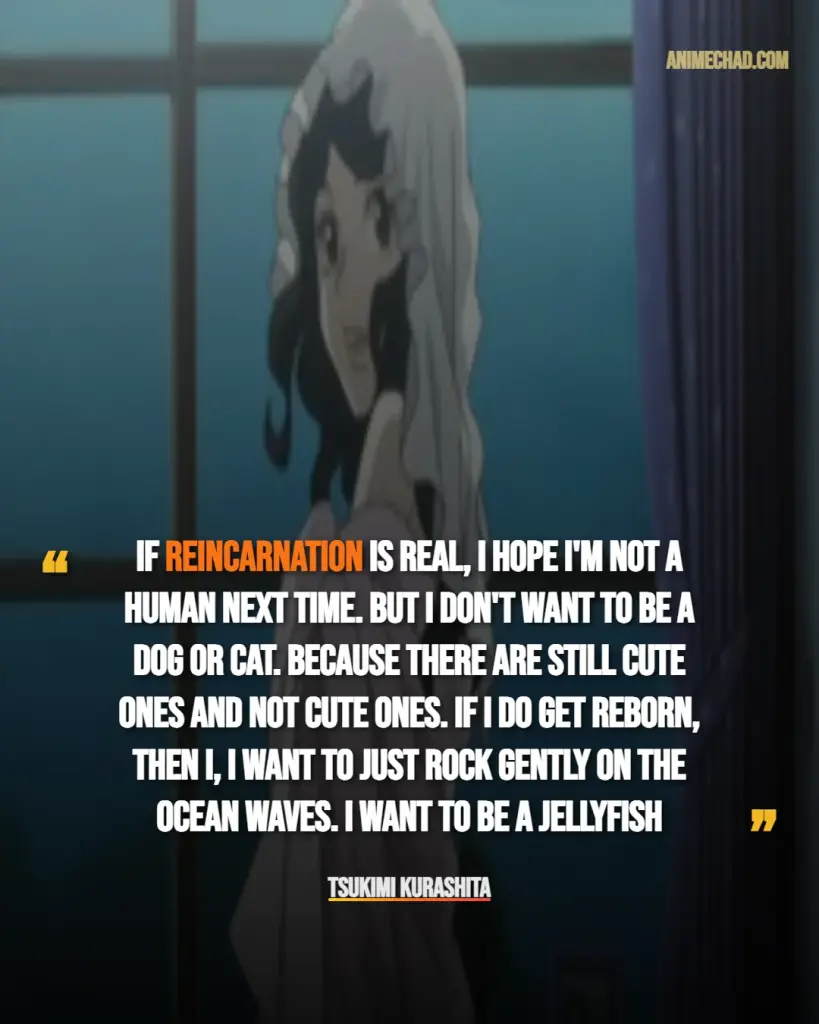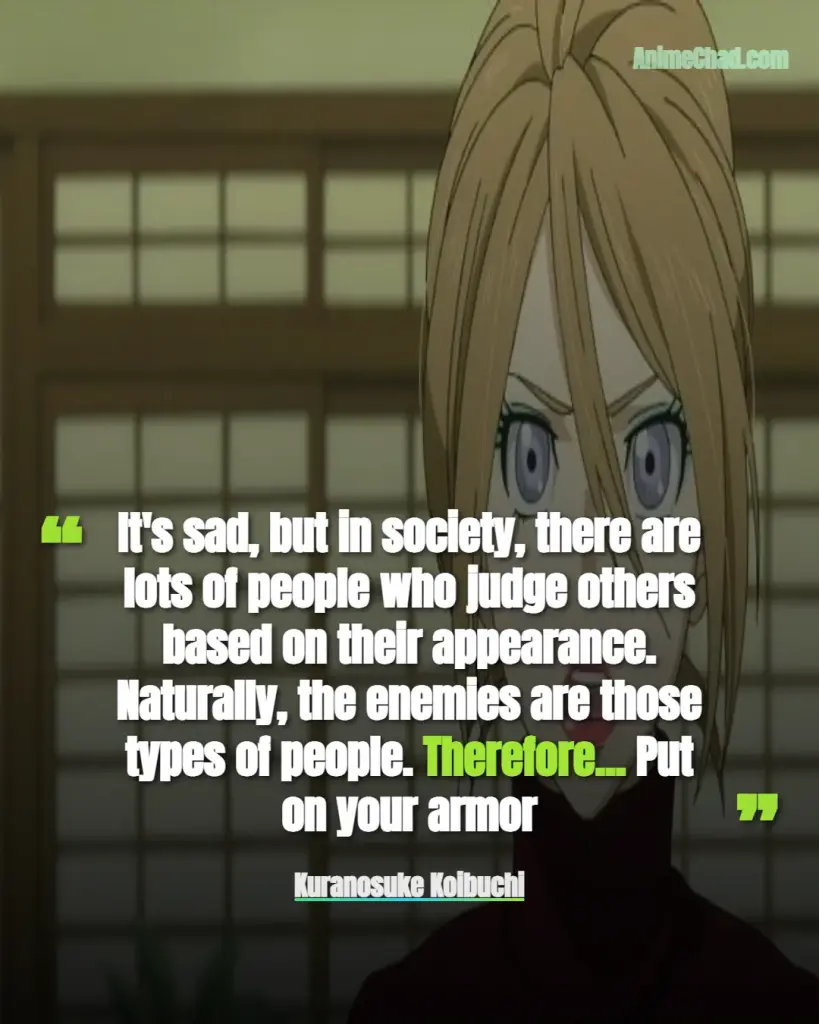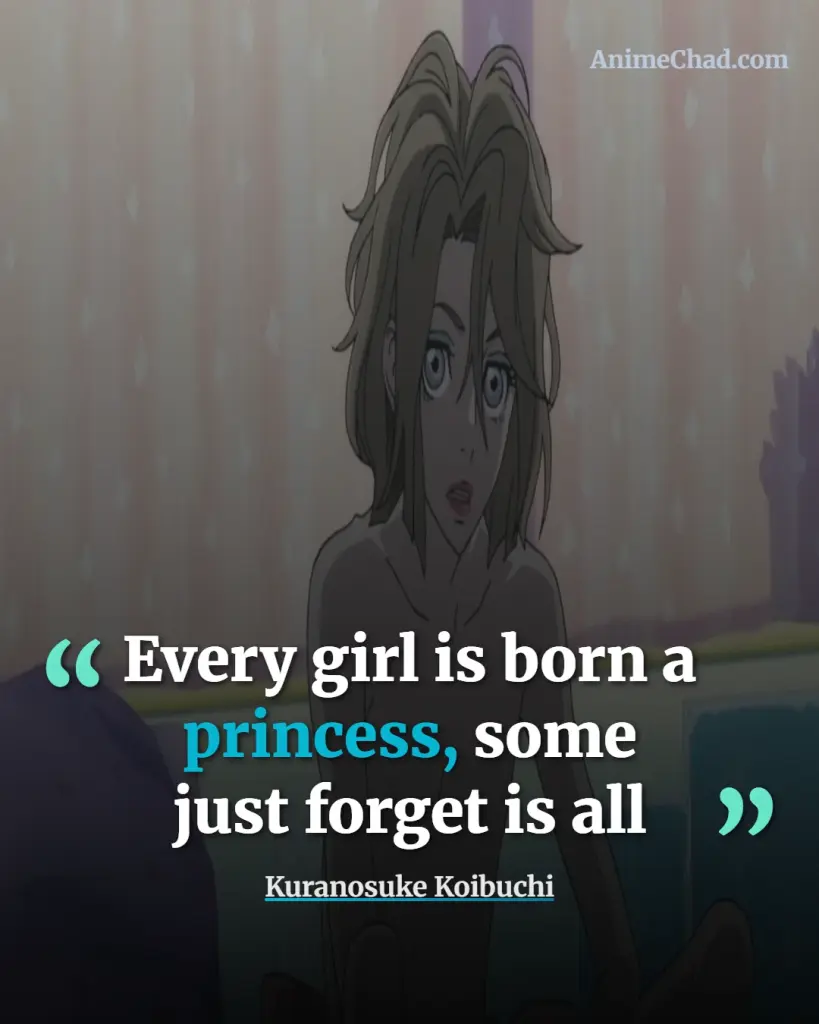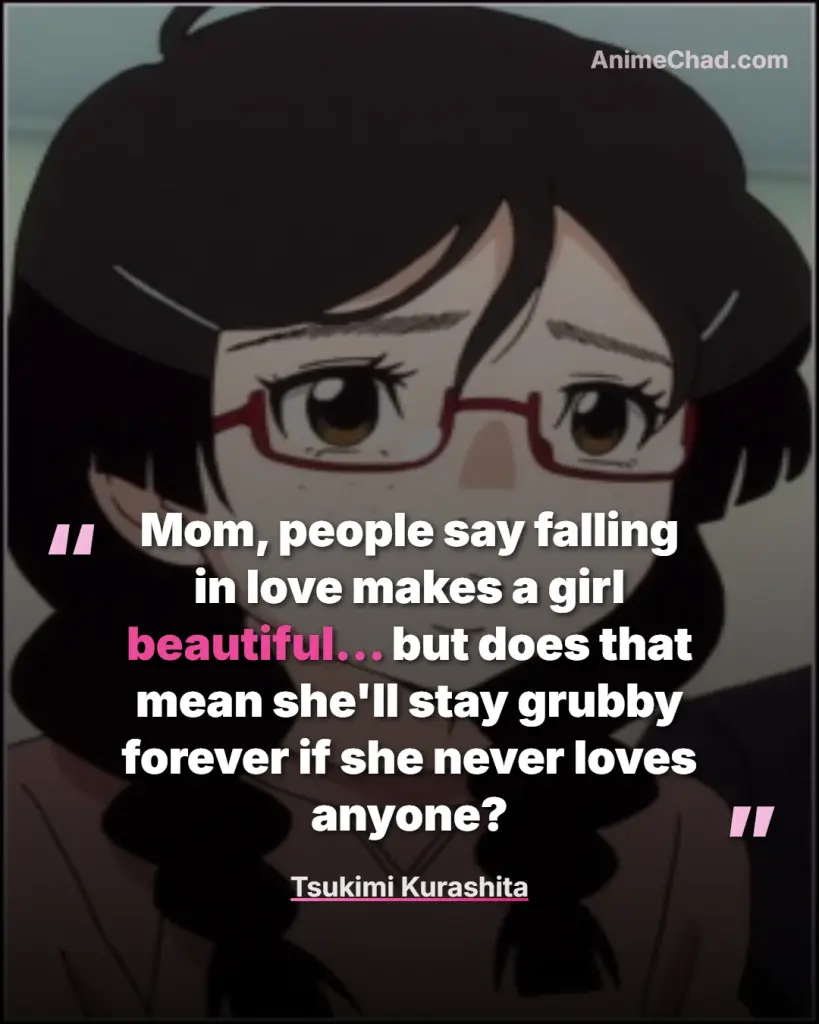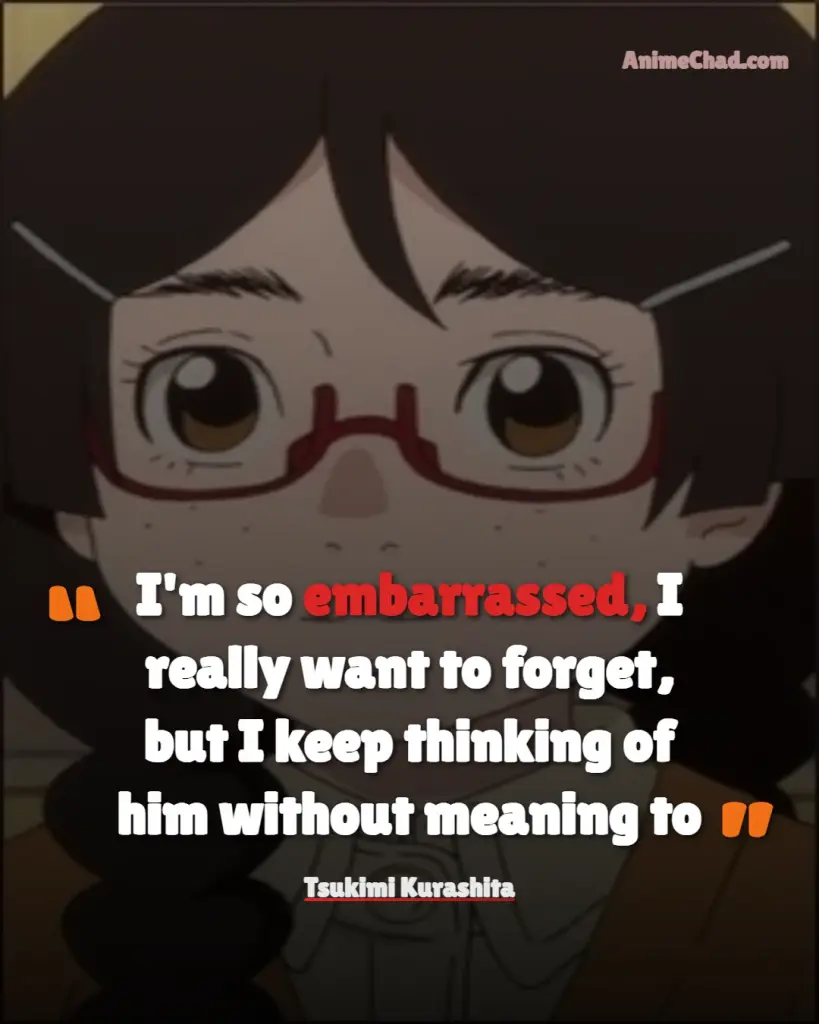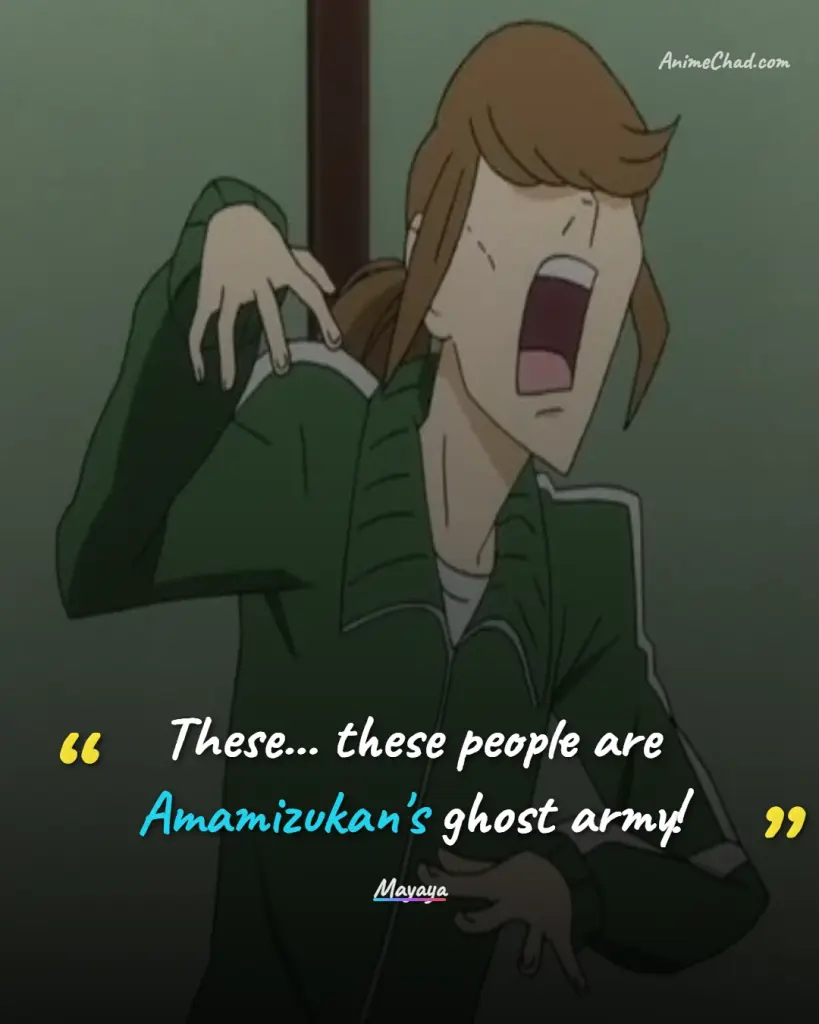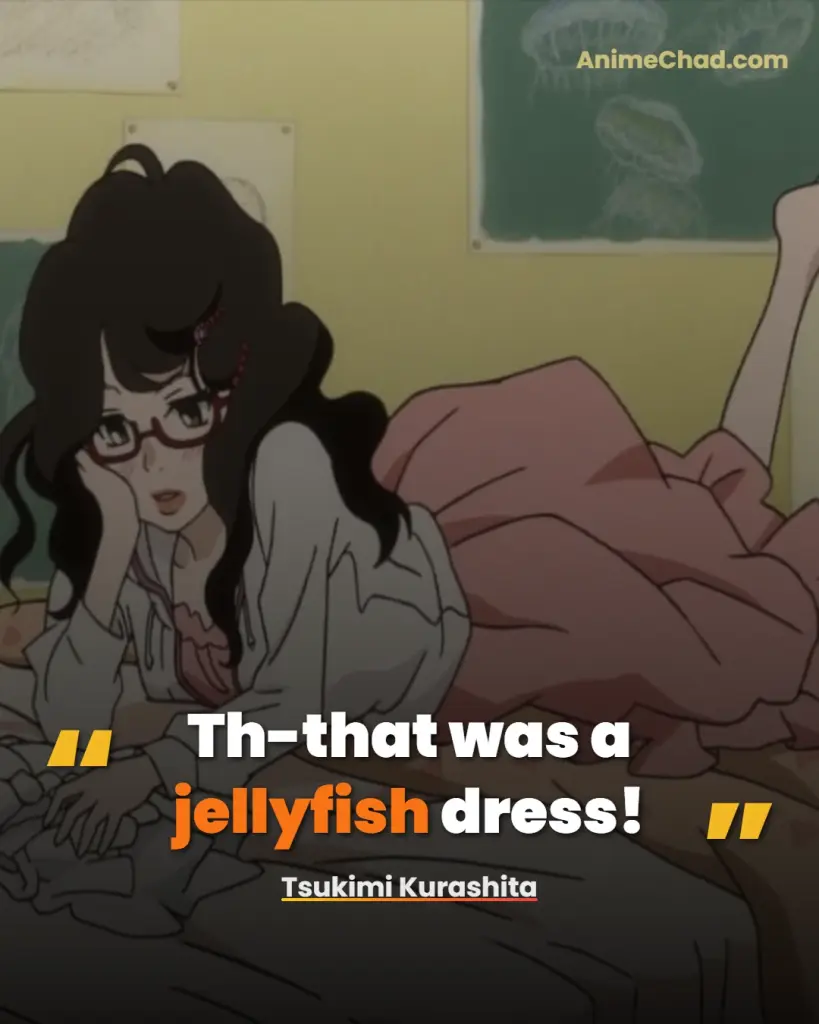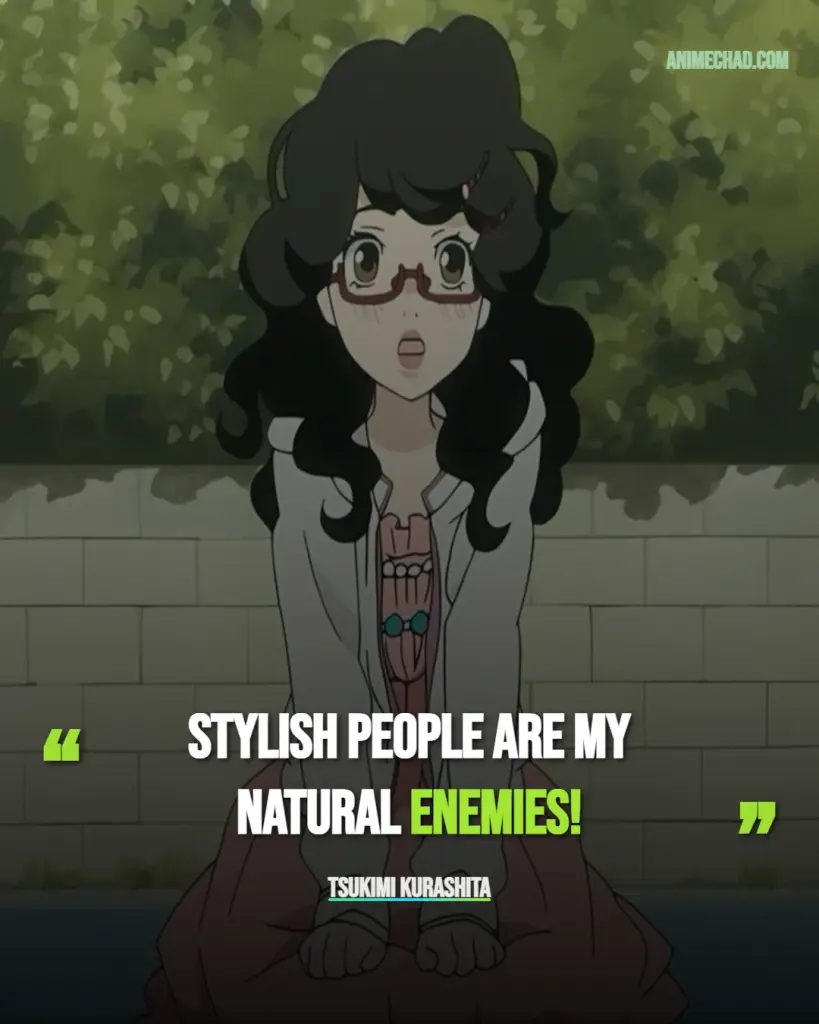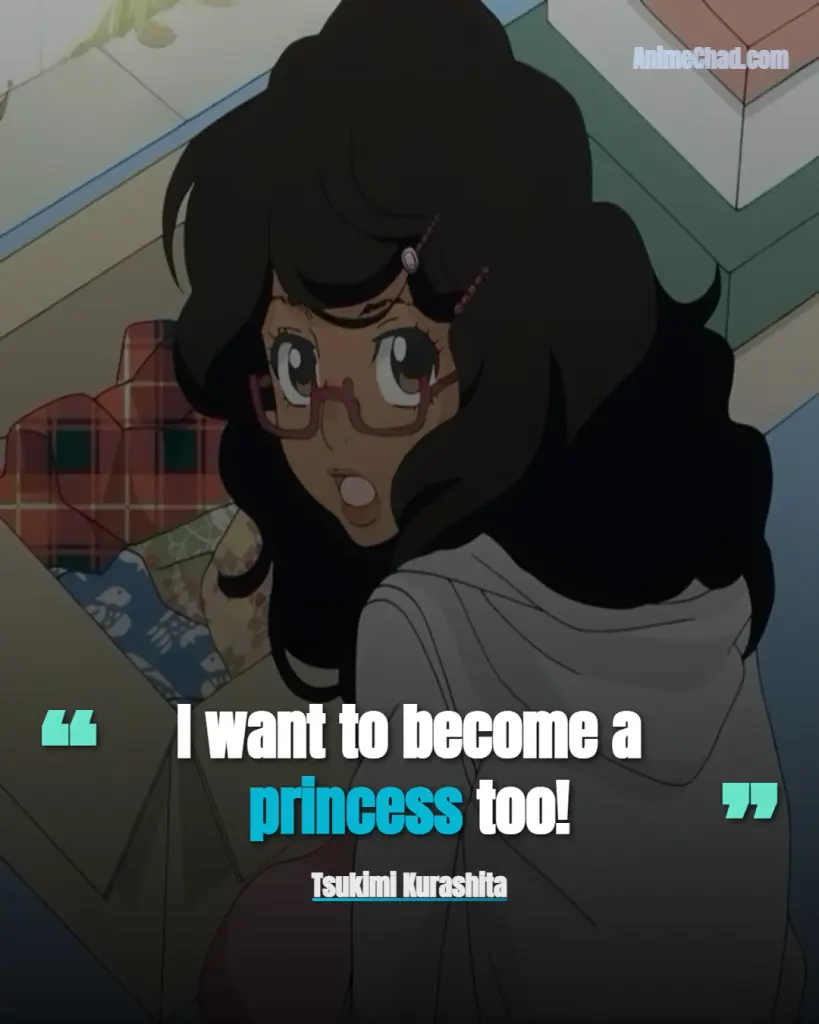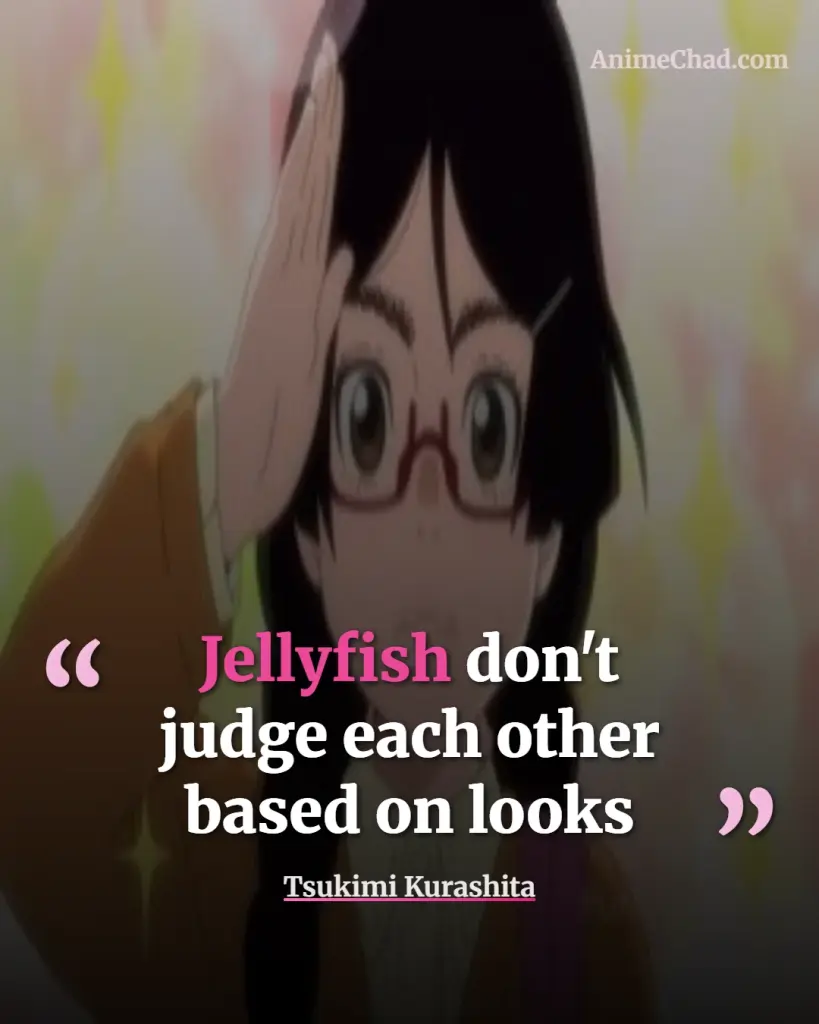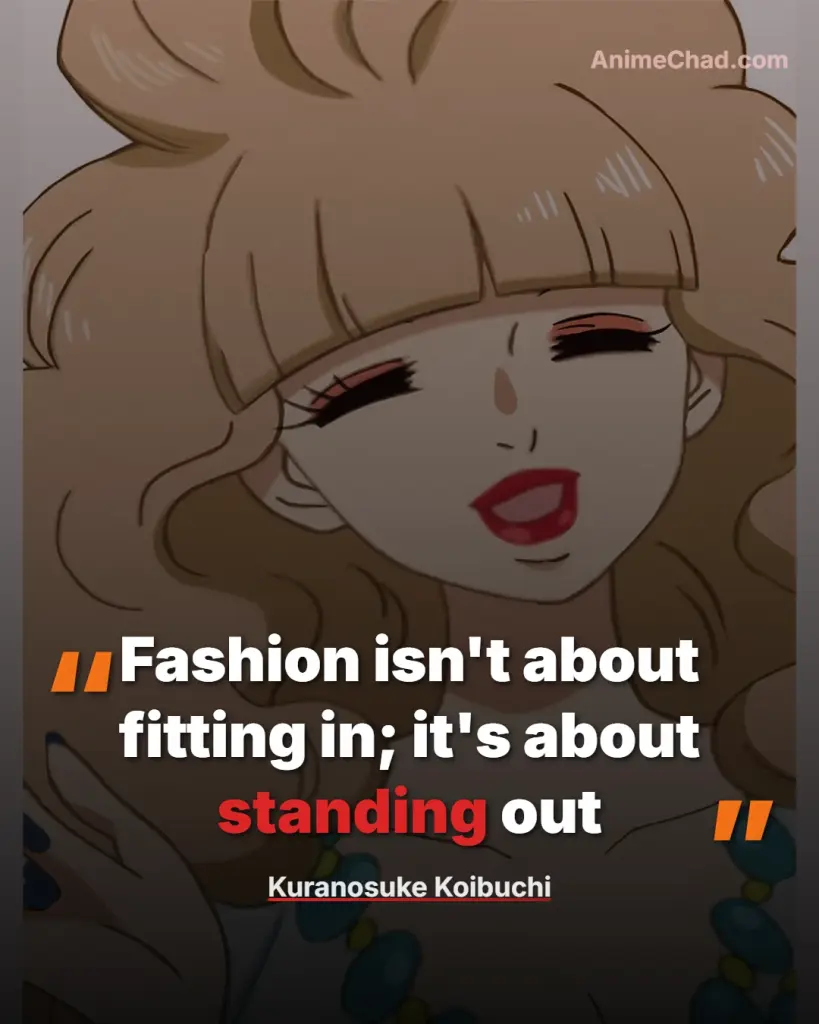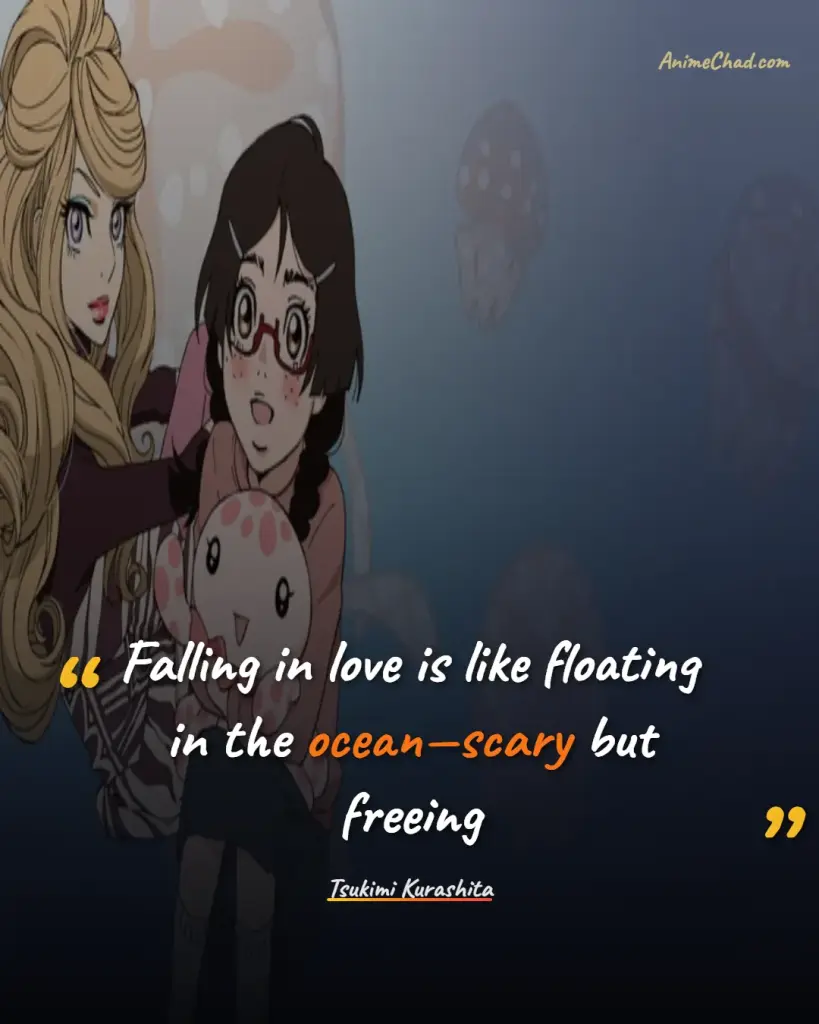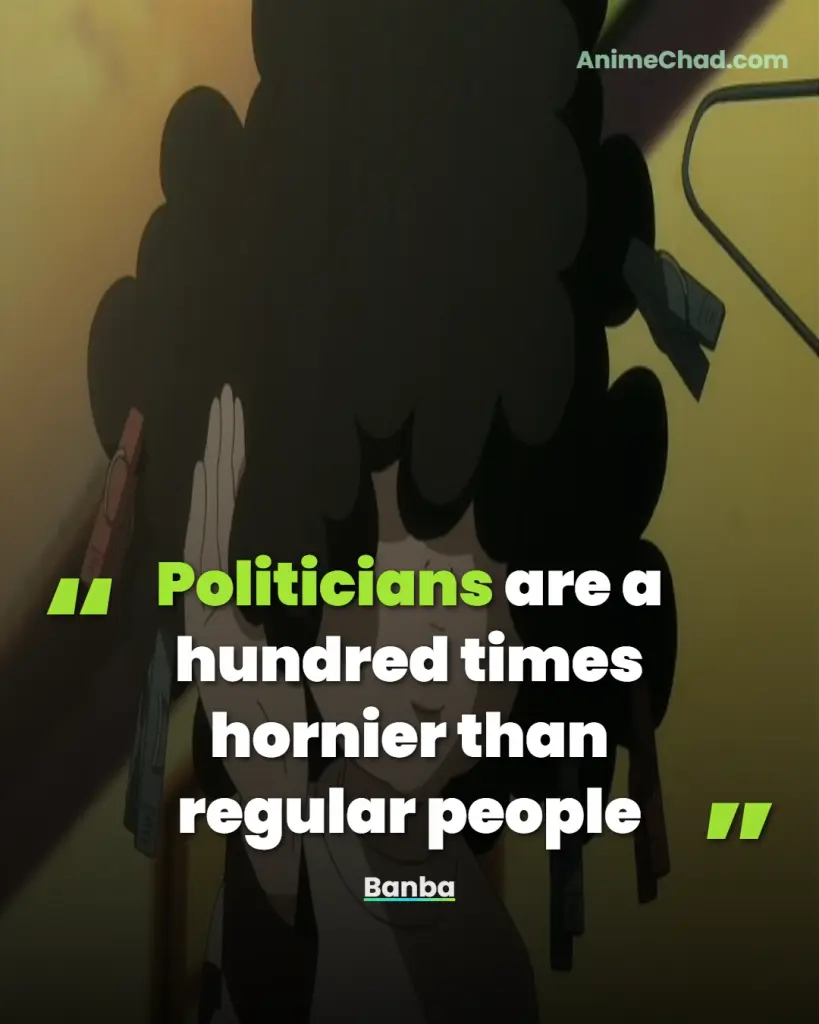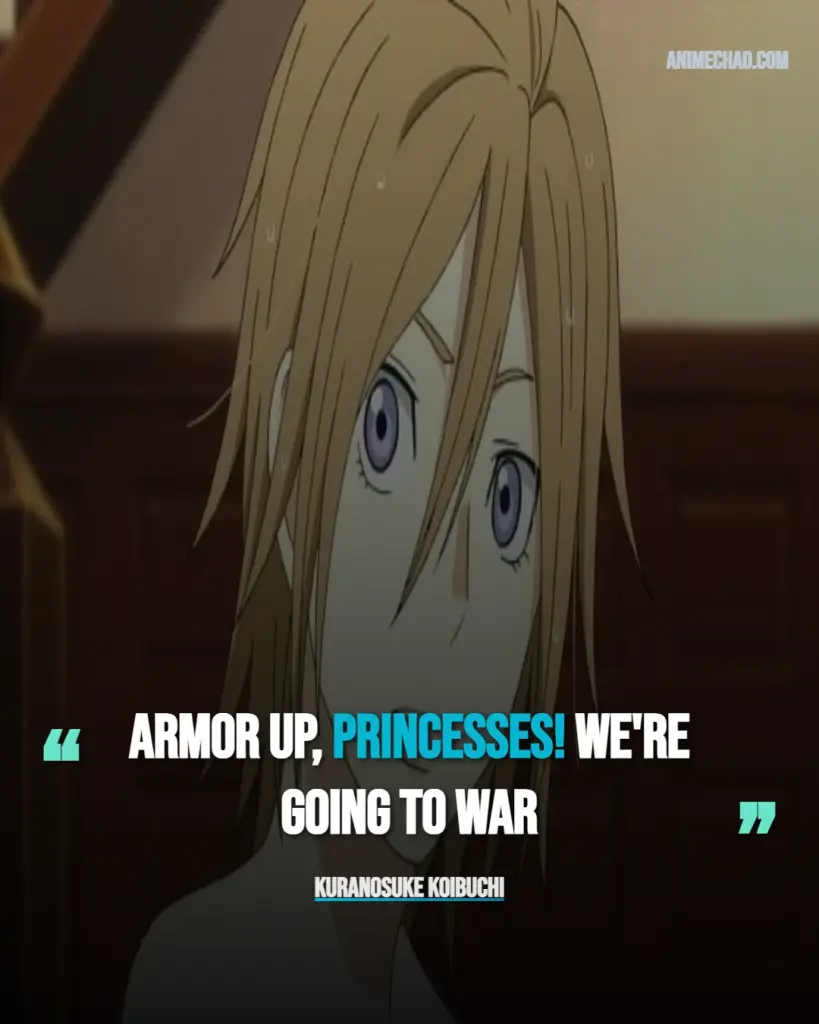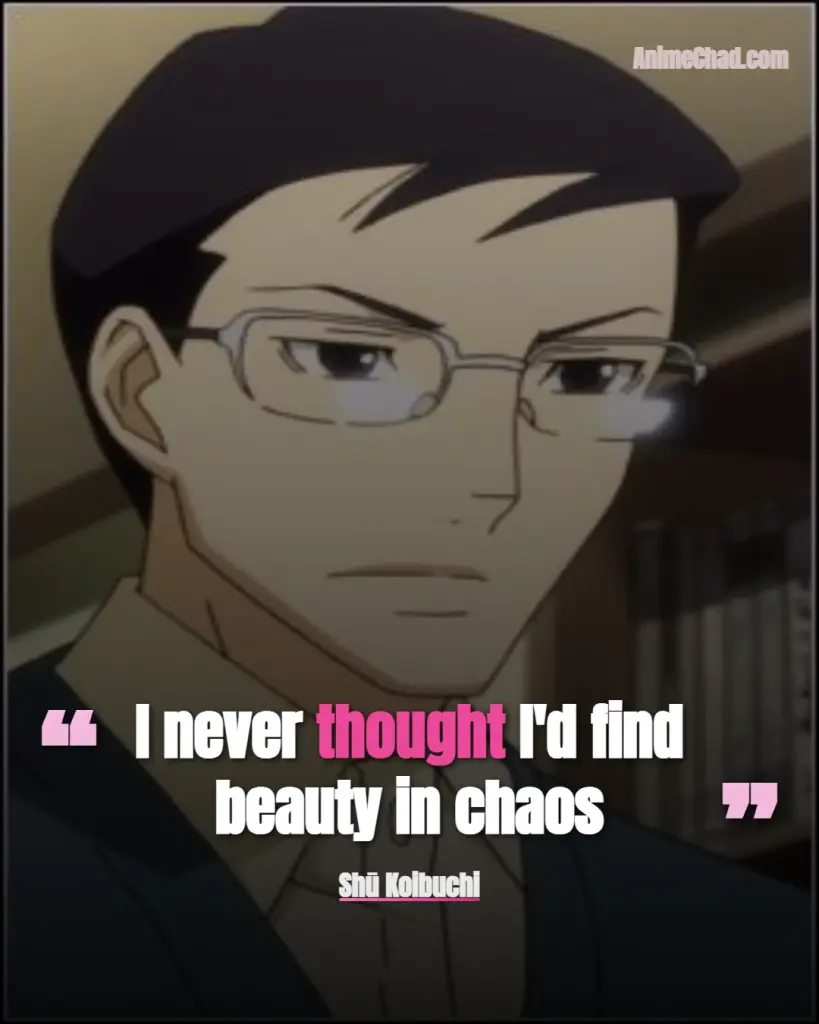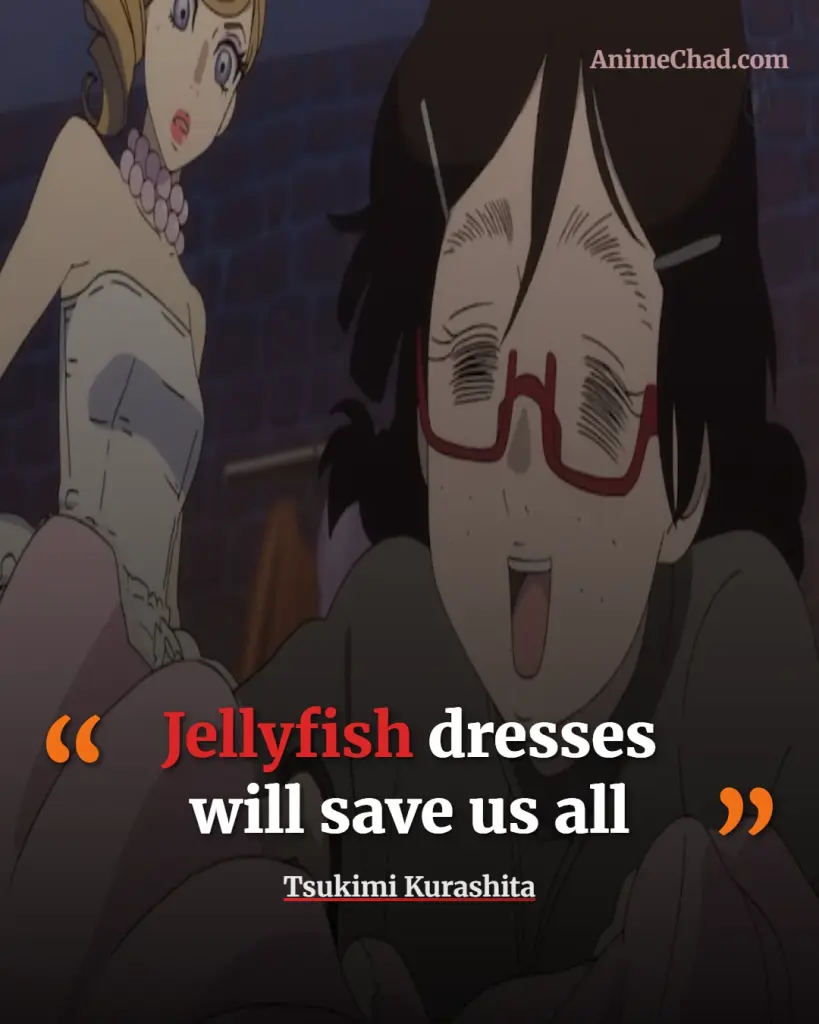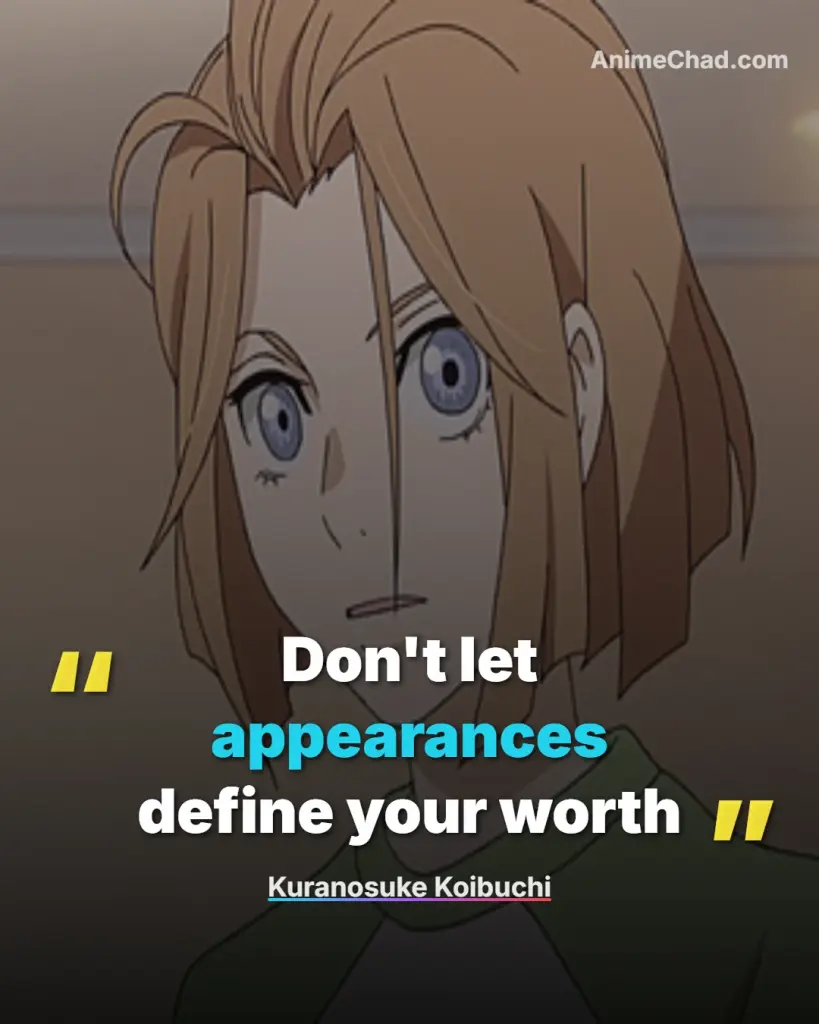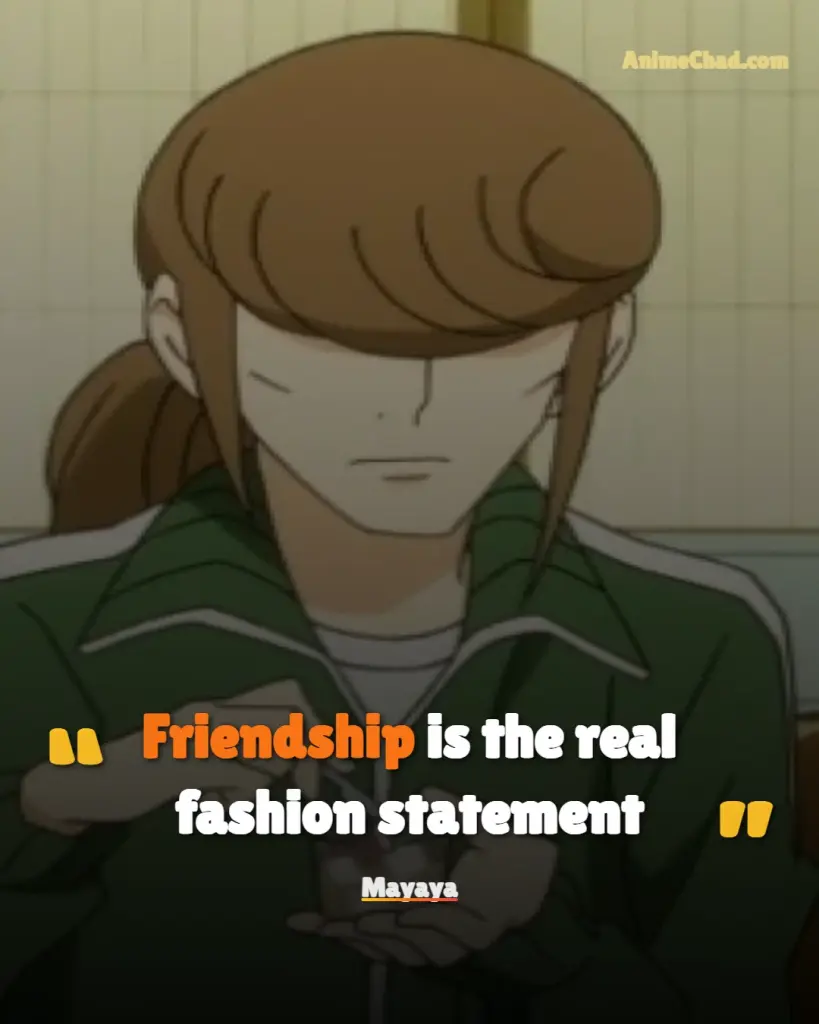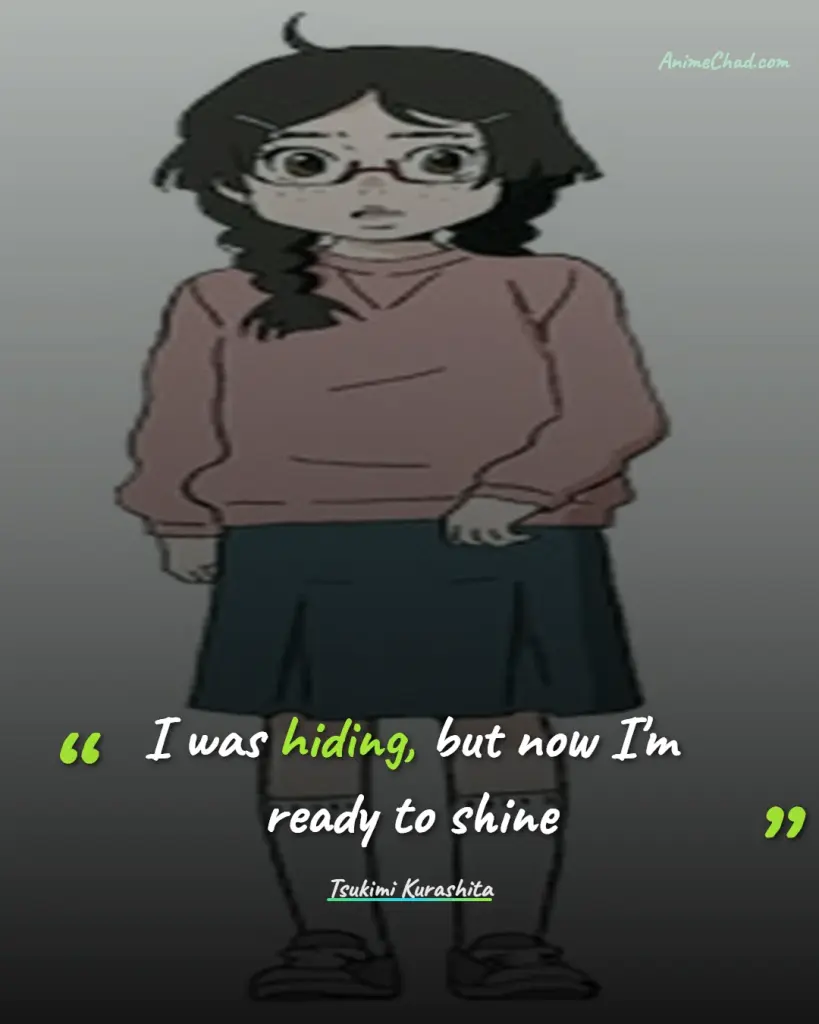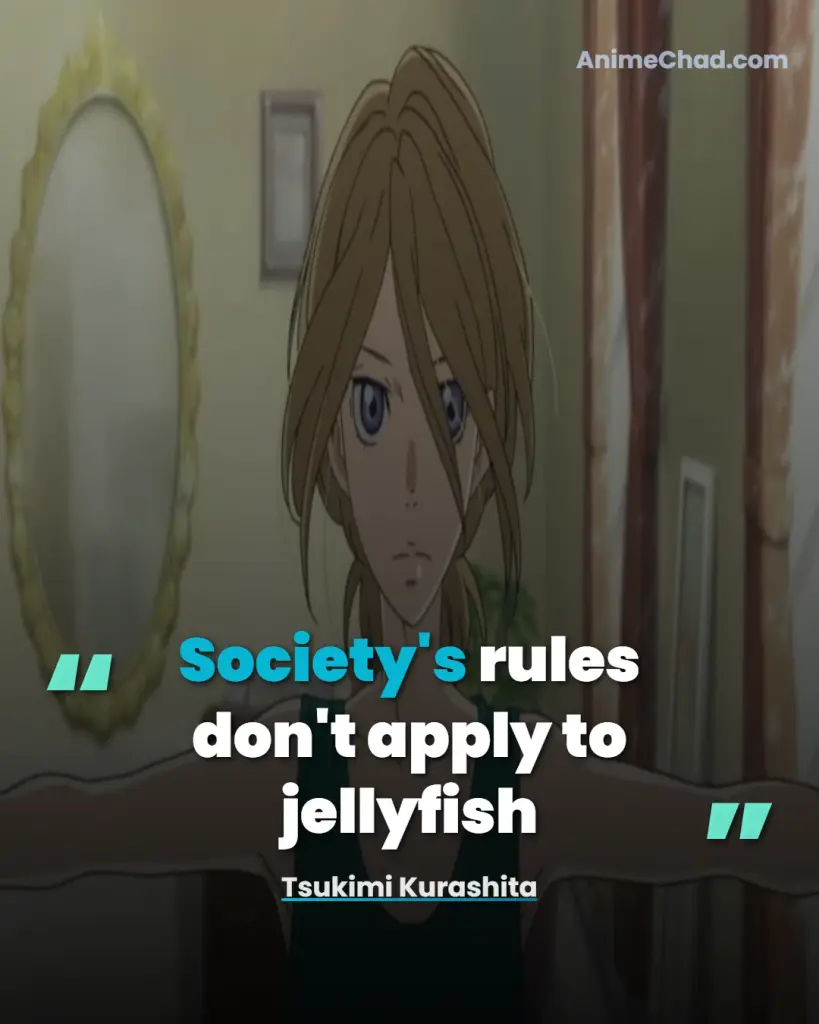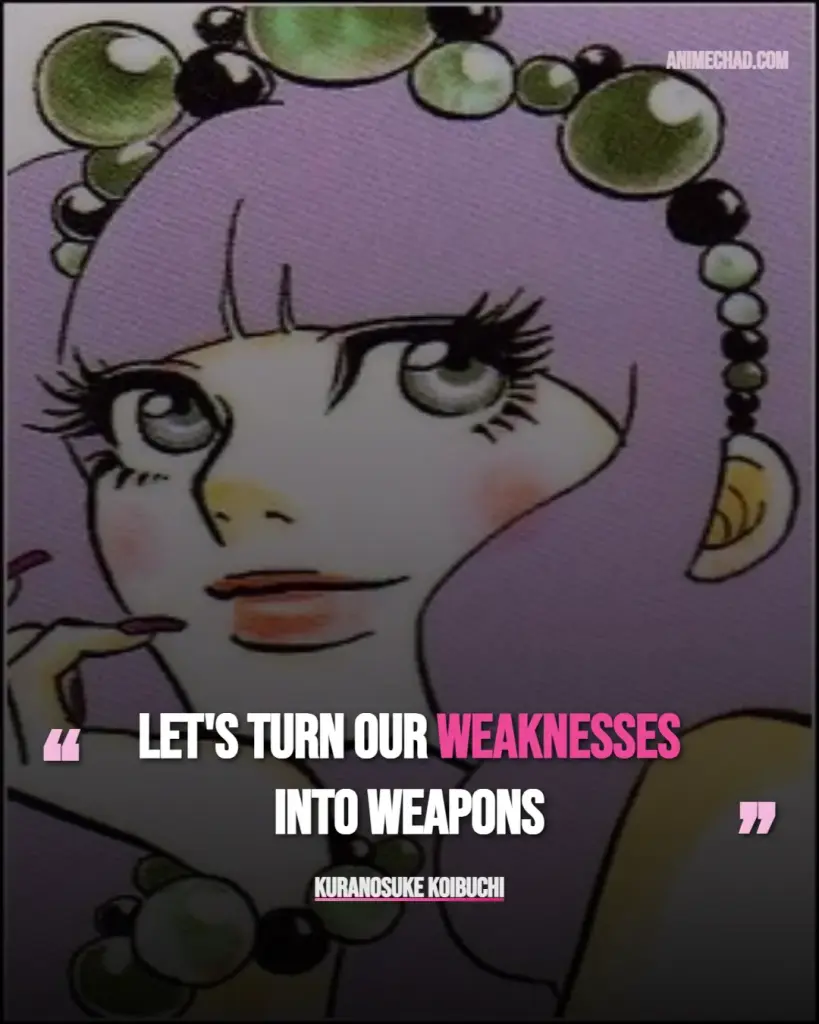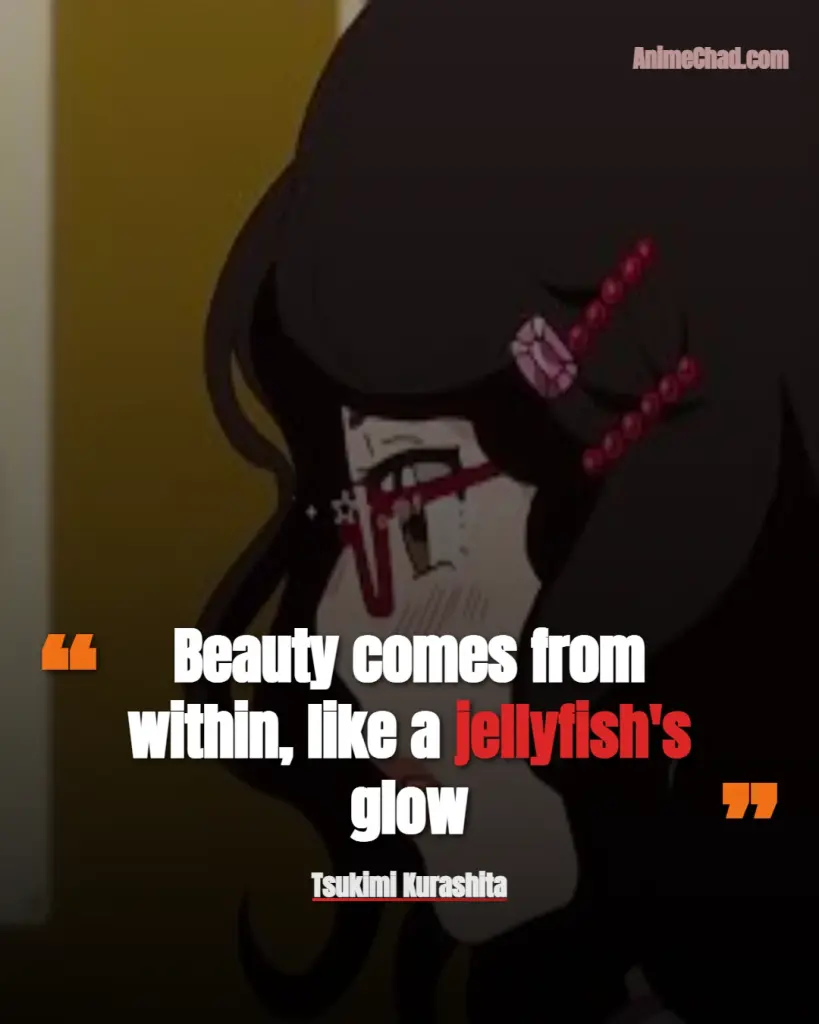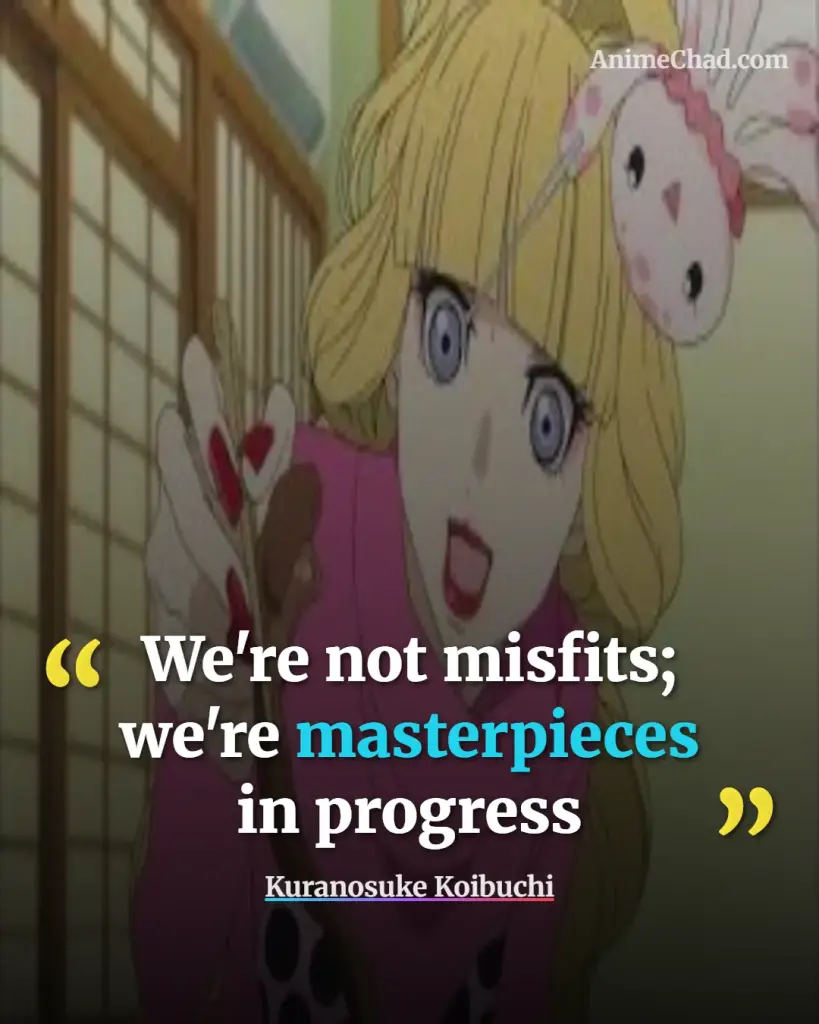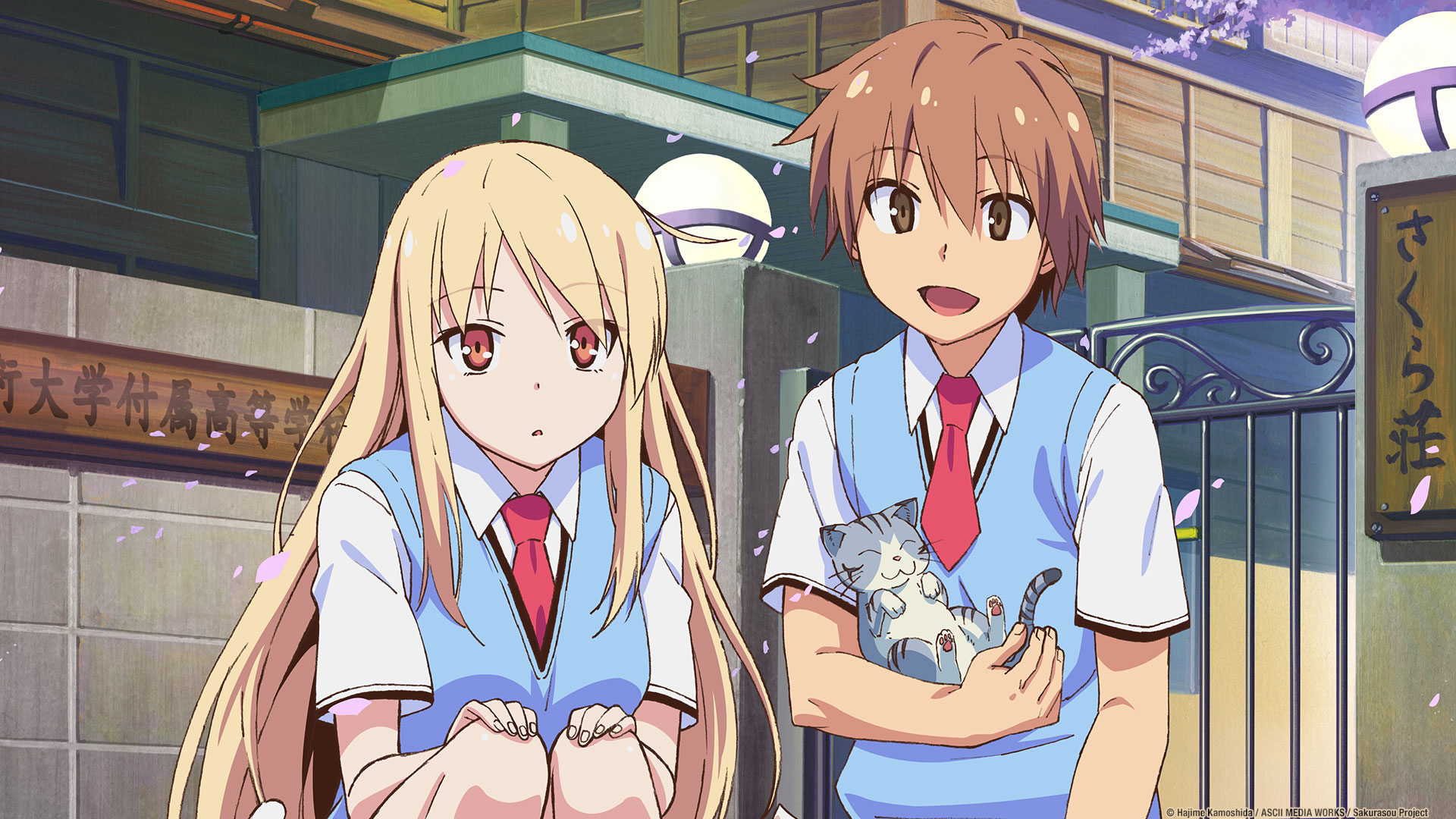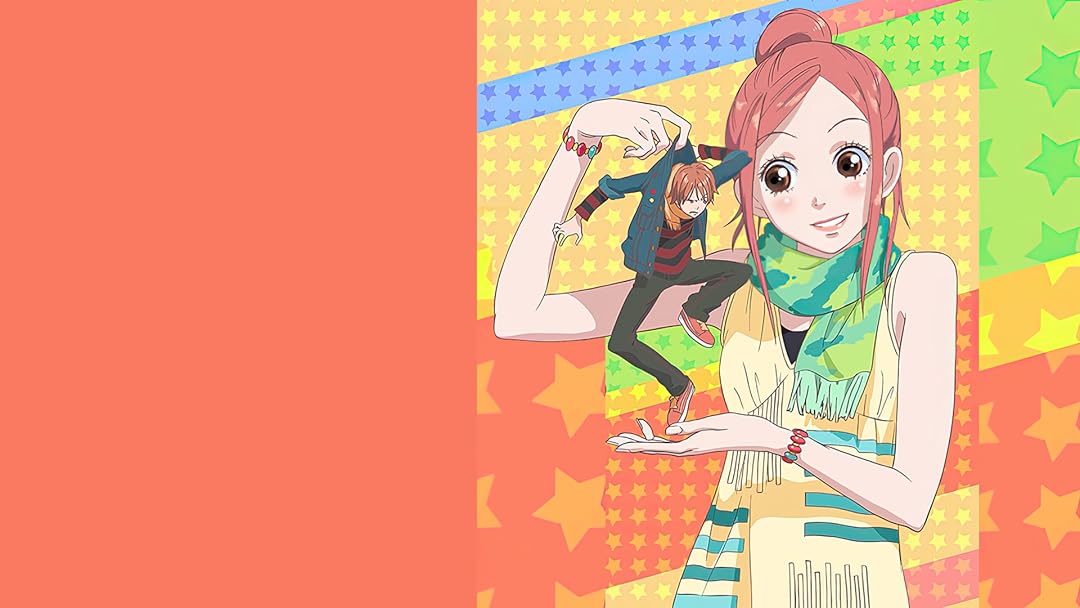Princess Jellyfish (2010) centers on Tsukimi Kurashita, a shy, jellyfish-obsessed aspiring illustrator living in the all-female Amamizukan apartment with fellow otaku misfits, whose life transforms after meeting the flamboyant cross-dresser Kuranosuke Koibuchi. The series delves into themes of self-acceptance, defying societal beauty norms, the power of friendship, and embracing one’s passions amid personal insecurities.
This curated collection of 25 canonical quotes from the anime and manga highlights emotional resonance, character evolution, and thematic depth, blending introspective peaceful moments with metaphorical “battles” against self-doubt and external pressures across various story arcs.
I’m sorry, mom. I have some bad news. I guess I messed up somehow, somewhere along the way. I didn’t manage to become a princess. I became a fujoshi instead
Episode 1 (Sex and the Amars)
Tsukimi Kurashita
Tsukimi’s heartfelt confession reveals her self-perceived failure, emphasizing themes of unmet expectations and her growth toward self-acceptance.
If reincarnation is real, I hope I’m not a human next time. But I don’t want to be a dog or cat. Because there are still cute ones and not cute ones. If I do get reborn, then I, I want to just rock gently on the ocean waves. I want to be a jellyfish
Episode 1 (Sex and the Amars)
Tsukimi Kurashita
This poignant wish captures Tsukimi’s escape from judgment, highlighting her emotional vulnerability and the series’ exploration of beauty standards.
It’s sad, but in society, there are lots of people who judge others based on their appearance. Naturally, the enemies are those types of people. Therefore… Put on your armor
Chapter 2 (from manga Vol. 1)
Kuranosuke Koibuchi
Kuranosuke empowers the Amars, symbolizing fashion as protection; it marks his role in fostering confidence and challenging societal biases.
Every girl is born a princess, some just forget is all
Episode 11 (The Aspired-for Aquamarine)
Kuranosuke Koibuchi
A tender reminder during Tsukimi’s low point, this underscores self-worth themes, aiding her development from insecurity to empowerment.
Mom, people say falling in love makes a girl beautiful… but does that mean she’ll stay grubby forever if she never loves anyone?
Episode 5 (I Want to Be a Jellyfish)
Tsukimi Kurashita
Tsukimi’s introspective query exposes her fears of unworthiness, connecting to romance themes and her gradual emotional awakening.
I’m so embarrassed, I really want to forget, but I keep thinking of him without meaning to
Episode 5 (I Want to Be a Jellyfish)
Tsukimi Kurashita
Reflecting budding feelings for Kuranosuke, this shows Tsukimi’s internal conflict, advancing her arc from isolation to relational growth
These… these people are Amamizukan’s ghost army!
Chapter 8 (I Want to Be a Jellyfish)
Mayaya
A humorous yet unifying declaration during a crisis, it emphasizes friendship bonds and collective resilience in defending their home.
Th-that was a jellyfish dress!
Chapter 8 (I Want to Be a Jellyfish)
Tsukimi Kurashita
Tsukimi’s excited realization blends passion with creativity, marking a pivotal moment in her artistic confidence and theme of self-expression
Stylish people are my natural enemies!
Episode 2 (Sukiyaki Western Matsusaka)
Tsukimi Kurashita
This early outburst reveals Tsukimi’s social anxiety, setting up her journey to overcome prejudices and embrace change.
I want to become a princess too!
Episode 3 (Enchanted)
Tsukimi Kurashita
Spoken amid transformation, it signifies Tsukimi’s emerging desire for self-improvement, tying into themes of aspiration and identity.
Jellyfish don’t judge each other based on looks
Episode 4 (Let’s Meet at the Aquarium)
Tsukimi Kurashita
A peaceful reflection on equality, this highlights Tsukimi’s solace in nature, contrasting human judgments and aiding her emotional healing.
Fashion isn’t about fitting in; it’s about standing out
Episode 6 (Night of the Living Amars)
Kuranosuke Koibuchi
Kuranosuke’s advice during a makeover pushes the Amars toward individuality, fostering group development against conformity pressures.
We’ve got to protect our sanctuary, no matter what
Episode 7 (Islands of Unemployment Cash-lending)
Chieko
This rallying cry unites the residents, emphasizing community themes and their “battle” against displacement in the development arc.
Falling in love is like floating in the ocean—scary but freeing
Episode 8 (Million Dollar Babies)
Tsukimi Kurashita
Tsukimi’s metaphor captures her romantic turmoil, illustrating emotional depth and growth in understanding vulnerability.
Politicians are a hundred times hornier than regular people
Chapter (from manga Vol. 2)
Banba
A comedic jab at Kuranosuke’s family, lightening tense moments while exploring class differences and personal freedoms.
Armor up, princesses! We’re going to war
Episode 9 (Midnight Cherry Boy)
Kuranosuke Koibuchi
Motivating the group for a fashion showdown, this metaphorical battle cry advances themes of empowerment and collective strength
I never thought I’d find beauty in chaos
Episode 10 (Days of Love and Lukewarm Water)
Shū Koibuchi
Shū’s rare vulnerability reveals his development, connecting to themes of unexpected connections and breaking stereotypes.
Jellyfish dresses will save us all
Episode 11 (The Aspired-for Aquamarine)
Tsukimi Kurashita
Tsukimi’s optimistic declaration in the climax symbolizes creativity as salvation, capping her arc of artistic and personal triumph.
Don’t let appearances define your worth
Chapter 15 (Million Dollar Baby)
Kuranosuke Koibuchi
Advice to Tsukimi during self-doubt, it reinforces anti-judgment themes and her ongoing journey toward self-love.
Friendship is the real fashion statement
Episode 6 (Night of the Living Amars)
Mayaya
A heartfelt affirmation amid group efforts, highlighting bonds that drive character growth and thematic unity.
I was hiding, but now I’m ready to shine
Chapter 20 (The Affair of the Necklace)
Tsukimi Kurashita
Marking a turning point, this reflects Tsukimi’s evolution from reclusiveness to boldness in the mid-series arc.
Society’s rules don’t apply to jellyfish
Episode 4 (Let’s Meet at the Aquarium)
Tsukimi Kurashita
A serene moment of insight, tying her obsession to themes of freedom from norms and emotional liberation.
Let’s turn our weaknesses into weapons
Episode 8 (Million Dollar Babies)
Kuranosuke Koibuchi
Inspiring the Amars during a challenge, this promotes resilience, advancing their collective development against
Beauty comes from within, like a jellyfish’s glow
Chapter 25 (Deep Impact)
Tsukimi Kurashita
This poetic realization emphasizes inner strength, connecting to self-acceptance themes in a reflective arc moment.
We’re not misfits; we’re masterpieces in progress
Episode 11 (The Aspired-for Aquamarine)
Kuranosuke Koibuchi
A climactic encouragement, encapsulating the series’ message of growth and the emotional impact of found family.
